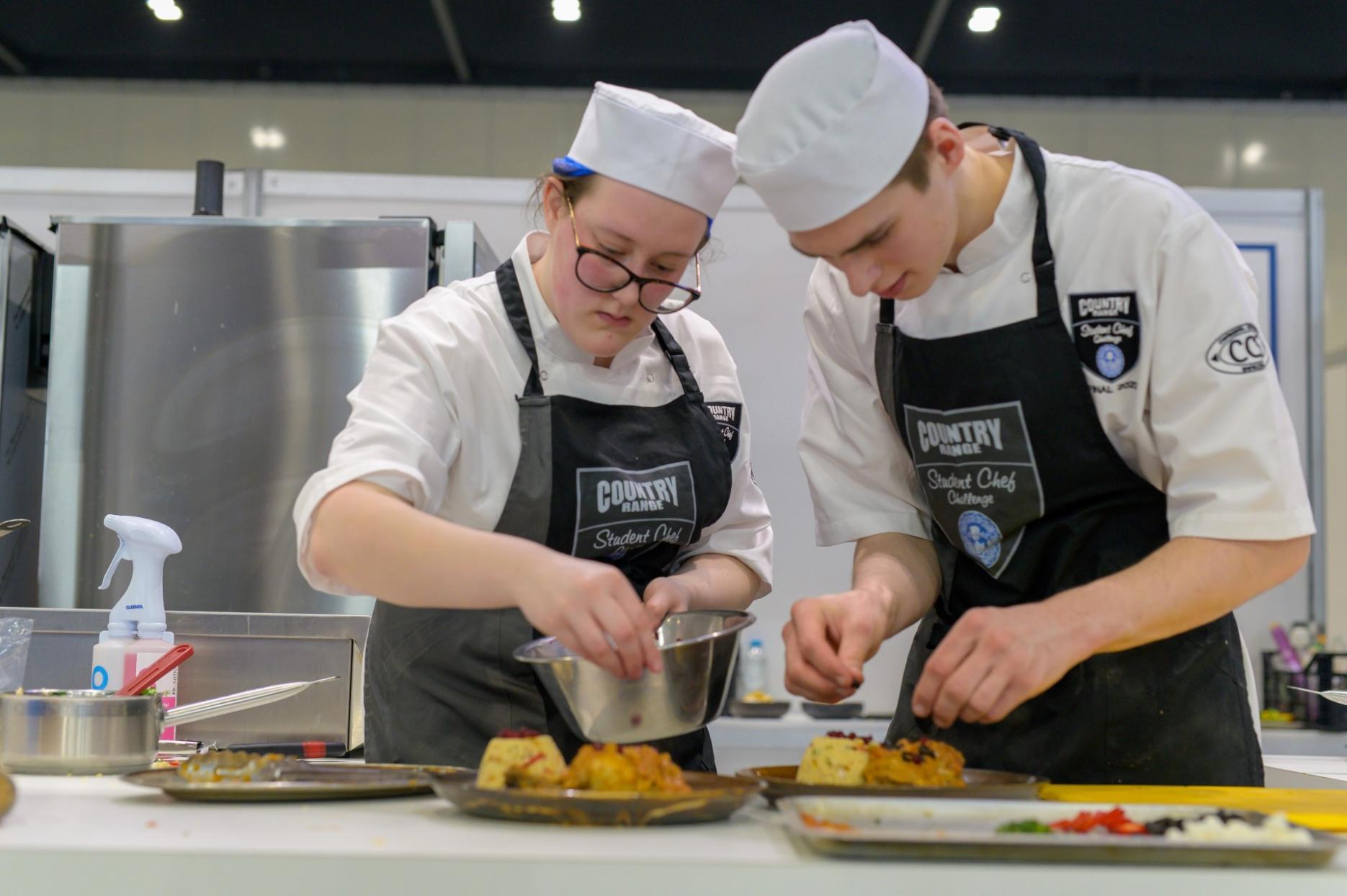
Country Range Student Chef Challenge lead judge encourages colleges to enter
Taking place on the 16th November at 3:30pm, Basten will hold a Q&A session to enable interested lecturers and students to find out more information about the competition including the theme, marking criteria and logistical considerations. Register to join Q&A here.
Run in collaboration with the Craft Guild of Chefs, who provide competition-standard judging and vital feedback to the students throughout the process, the Country Range Student Chef Challenge has been a key part of developing culinary talent for over 25 years.
The focus for this year’s competition is ‘Love Local’ and challenges teams to discover and showcase the best of their local area. The criteria includes:
- Starter: Vegetarian - can contain dairy and eggs
- Main: Seabass, one whole (suggested weight 1.2kg) can bring gutted but must be filleted as part of the competition. Served with a mollusc or bi-valve garnish, a starch, and British seasonal vegetables
- Dessert: Chocolate - at least 50% of Country Range white or dark chocolate drops must be used or a combination of both
Basten said: “With the kitchens crying out for more skilled chefs due to huge shortages, the opportunities to progress, grow and succeed in hospitality have never been as great. Previous winners have gone on to work at Michelin-starred restaurants so these competitions can provide a massive career boost.
“The Country Range Student Chef Challenge is the perfect preparation, testing key skills and creativity, while providing valuable experience of what it’s like to work in a fast-paced, team orientated kitchen.
“Whether they have already started preparing their menus or are still undecided on whether they can enter, the Q&A is a great opportunity to ask questions about the brief and gain advice on what the judges are looking for and how best to approach the challenge. There’s still loads of time to put submissions together but they must act soon.”
Tips For Submitting menus & entering
- Pristine planning and preparation are vital to success
- Read the criteria and guidelines carefully together as a team several times to gain a full understanding of the brief. Write notes and ideas
- Idea generation and research – look around locally, look at cookbooks, go online and share your ideas as a team. What dishes do you want to cook? What is the local area known for when it comes to food and drink? What local ingredients and flavours are you looking to showcase?
- Testing – once you have highlighted key ingredients of interest and dish ideas, experiment, play around with and refine the ideas in the kitchen. Or maybe even invite friends over for dinner at home and get some honest feedback
- Final practice – have a final run through and, if possible, get the food judged by lecturers and peers so final tweaks can be made to the dishes before submission
- Produce a full ingredient list, equipment list, methodology and work plan for all the different steps the team needs to take
- Write up the draft menus, think about the words and use correct terminology. Do not use classic terms if you are not going to produce items in a classic way. Re-read and make sure the dishes and menu tick all the boxes of the brief
